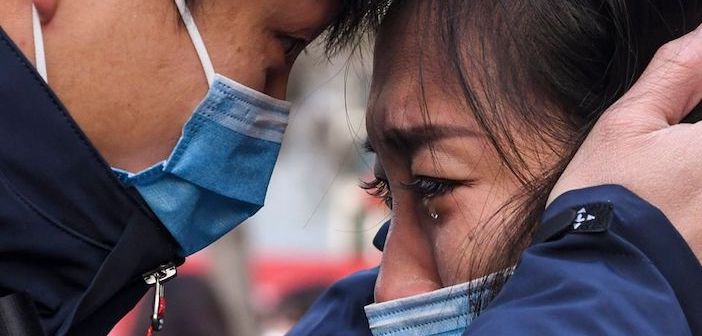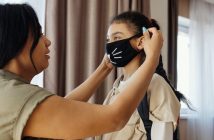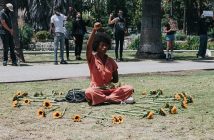“I’m just visiting from Beijing. We came to celebrate Chinese New Year with family here” a friend tells the waiter at a restaurant in Georgetown in Washington DC only to see his eyes widen and awkwardly excuse himself.
Over in Europe, Chinese living in German have been asked questions like “why do Chinese eat wild animals all the time?”, and dealing with comments like “if Chinese don’t eat bat, nothing would happen.”
On over on our side of the world, a Beijing based mixed-race family landed in Bangkok. “The passengers from Russia were looking at us like we were about to attack them.”
While the coronavirus outbreak is already an unsettling thought, I can’t help but compare it to the SARS outbreak of 2003, which, for me, the worst came at the end; after all the travel bans have been lifted. I’ve experience racism countless times throughout my life, but one of the most vivid experiences happened because of SARS.
In 2003 I was a sophomore in high school in my beautiful hometown of Newport Beach, California – a place that never had a SARS outbreak. My mom was in Paris for work and we decided that I would meet her there and we’d make a long holiday of it. As I boarded the plane at Los Angeles International Airport, SARS never even crossed my mind. I was busy making mental lists of places I wanted to visit and things I wanted to eat.
It wasn’t until the rest of the passengers started boarding that I realized this wasn’t going to be like every other flight.
The man who sat down next to me looked disgusted as he walked towards his seat. When he approached his seat, he pulls out a face mask and puts it on. Then he sits down, wipes down the seat with a wet wipe, and stares at me. This middle-aged man never once said a single word to me but continued to stare me up and down for the entire duration of the flight. From LA to Paris, that was an 11-hour flight… He never turned his head away, never spoke a single word to me. He stared at me as I fell asleep during the flight, and when I work up, he was still starring at me. He just stared with eyes filled with burning hatred.
With airlines canceling flights to and from China, I fear that even if the coronavirus is contained and a vaccine is created, the backlash of racism towards Chinese people won’t be that easily fixed.
Needless to say, that flight put a damper on my holiday in Paris, but more importantly, it was a memory of blatant racism that stuck with me my whole life. That experience made me feel like I didn’t belong, that I’m not welcomed anywhere. I felt gross, like I was less than human; like I was a rodent.
On the Twittersphere racist coronavirus related tweets have already been popping up and it’s not about to die down anytime soon.

The racism has already started and it’ll be a while until something else takes its place. Now when Beijing families travel anywhere outside of China, whether you’re an ABC (American born Chinese), CBC (Canadian born Chinese), BBC (British born Chinese), or mixed-race family parents need to mentally prepare to explain racism to kids experiencing it for the first time.
According to Dr. Margaret Hagerman, a sociologist and author of White Kids: Growing Up with Privilege in a Racially Divided America “kids are learning and hearing about race regardless of whether parents are talking to them about it.” When kids encounter racism, it’s better for parents to address it and explain to them why some people might say hurtful things than to ignore it. Ignoring the conversation doesn’t mean your kids didn’t catch on. It simply teaches them to accept it.
Source: Parenttoolkit.com
Photos: Wang Few – Xinhua, Twitter, Nextshark.com




